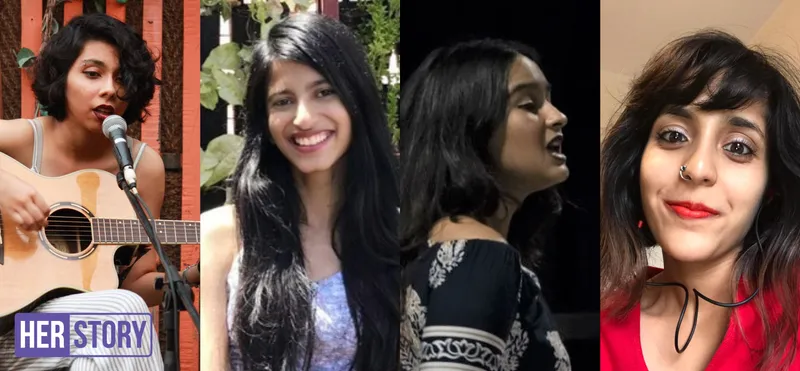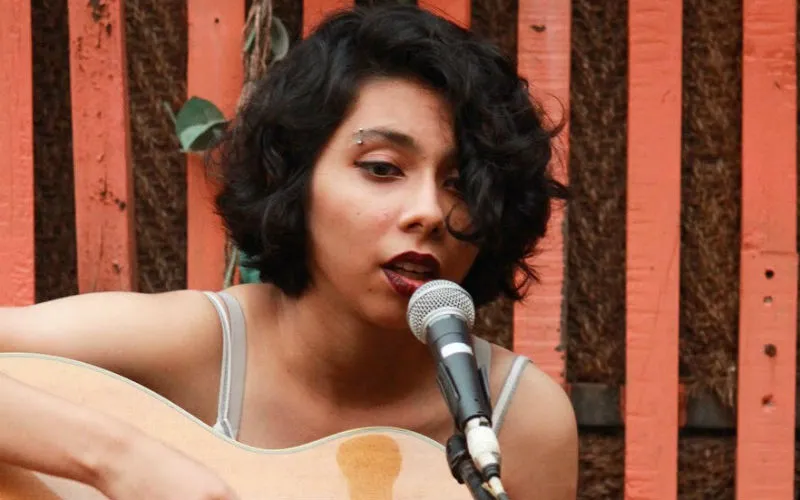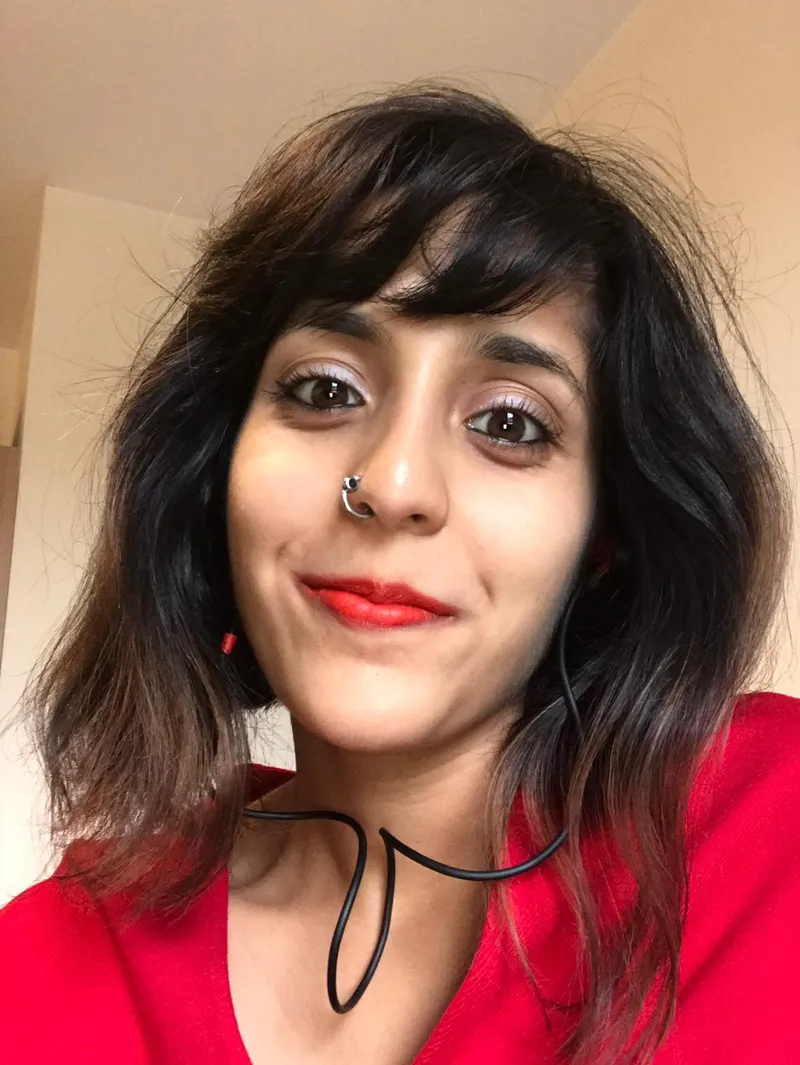Meet these four young poets who are using their words to address mental health
While poetry has always been a creative outlet to express feelings and emotions, it also serves as a platform to convey social messages. These four poets use the art form to discuss mental health.

Karshni Nair, Sahiti Gavarikar, Anoushka Shyam, and Anusha Ramji
From page to spoken poetry, words have a way of making people reach deeper, reflect, and open themselves up to different perspectives of the world. Poets talk about their experiences of joy, sadness, anger, trauma, mental illness, loss, and much more through their work.
HerStory reached out to four young poets and asked them how they view mental health, and how they use poetry to address it.
Karshni Nair
Karshni is a 19-year-old Mumbai-based college student and singer. She likes to use music and poetry as a way of dealing with her struggles, and to understand her mental state better.

Karshni Nair
“Keeping one’s mental health in check is important because it helps them enjoy being alive. I value being aware about my mental health, because in this cultural and political climate, we rarely get time to focus on ourselves. Our mind and our body work in sync with each other, so mental health is just as important as our physical health.
“My poetry is what I’d call, 'extremely intimate'. It is a kind of catharsis for me. Since I turn to poetry to explore what’s on my mind, I write down my unfiltered thoughts about the various experiences I’ve had in life. Although words cannot entirely describe my feelings, they help me articulate them as best as I can.
“When it comes to making others understand the importance of mental health, we need to remember that not everyone can fully understand the depth of a mental disorder. But from what I’ve seen, many of them tend to gain a better insight into mental health after listening to a poet’s personal experiences. Empathy is brought out in the listener, and we get a step closer to de-stigmatising the topic of mental health.
“Although listening to and reading poetry is important, I feel that people may benefit from writing poetry themselves, because, often, there are revelations about one’s own mental state hidden somewhere in those lines of honest poetry.”
Watch Karshni perform an original poem, How Are You Today?, here.
Also read: On songs with substance - 8 women who made a statement with their music in 2018
Sahiti Gavarikar
Sahiti is a 22-year-old student and a spoken-word poet from Bengaluru, pursuing her Master's in Psychological Counselling.
1554789062645.png?fm=png&auto=format)
Sahiti Gavarikar
“I think mental health is an important topic to discuss today, as mental illnesses are on the rise, and there is an alarming lack of information and mental health professionals.
“As a counselling student, I have been exposed to the stark reality of reactions to mental illnesses. The stigma against it leads people to avoid conversations about mental health in general.
“As a poet, I have tried to bring more attention to the topic through spoken-word poetry, which tends to make people think deeply. I took part in Louder Than Words, a mental health and poetry initiative by Airplane Poetry Movement, and performed about depression to a crowd of 150+. I also organised an open-mic event surrounding suicide prevention at college, where various poets reached out to the audience with their words.
“I think art is a powerful medium to make an impact and change mindsets towards mental illnesses. Through my poetry and words of encouragement, I prompt others to speak out. As somebody who aims to pursue a career in the field of mental health, I am constantly looking out for ways to create awareness and sensitise people about the topic.”
Watch Sahiti perform an original poem, Bad Romance, here.
Anoushka Shyam
Anoushka is a 19-year-old student at Ashoka University, Haryana. Poetry to her is an emotional outlet, and she writes about her identity, including mental health, sexuality, and gender.
1554789204822.jpg?fm=png&auto=format)
Anoushka Shyam
“My engagement and awareness of mental health comes from three places and facets of my identity.
“First, my own issues with mental health, having struggled with anxiety for years. Second, being a young person in a social environment where discourse around understanding mental health is increasingly. Third, being a student of psychology who wishes to work in this field in the future.
“It’s so important to understand how mental health impacts individuals and the population as a whole, because it has been stigmatised and misunderstood for ages. Through my poetry, and hopefully through my work later in life, I want to encourage conversations around this topic, and put my stories, along with the stories of so many others, out there.
“Writing about mental health, to me, is not only a way of sharing different aspects of mental health with people, but also a form of catharsis through which I can process my feelings and understand myself better.”
Watch Anoushka perform an original poem, Carry On, here.
Anusha Ramji
Anusha is a 21-year-old psychology student currently living in London. She loves exploring the deeper things in life like science, physics, existentialism, and philosophy.

Anusha Ramji
“I’ve struggled with my mental health all my life. It’s woven into me, but I don’t believe it defines me. I see it as something I can grow with, not against.
“I started writing poetry because I needed a way to cope with my struggles. I just started pouring my heart out onto paper, and felt a sense of catharsis as the pain left me. My poetry is a both a result and an influencer of my mental health and I think it is reflected in the depth of my emotions.
“When I write something, I free myself from the shackles I’m often bound by. I am able to speak my mind and be my most authentic self.”
Watch Anusha perform an original poem, A Letter To Who I Am From Who I Was, here.
Also read: These teenagers are making social media safe by fighting bullying, body shaming







